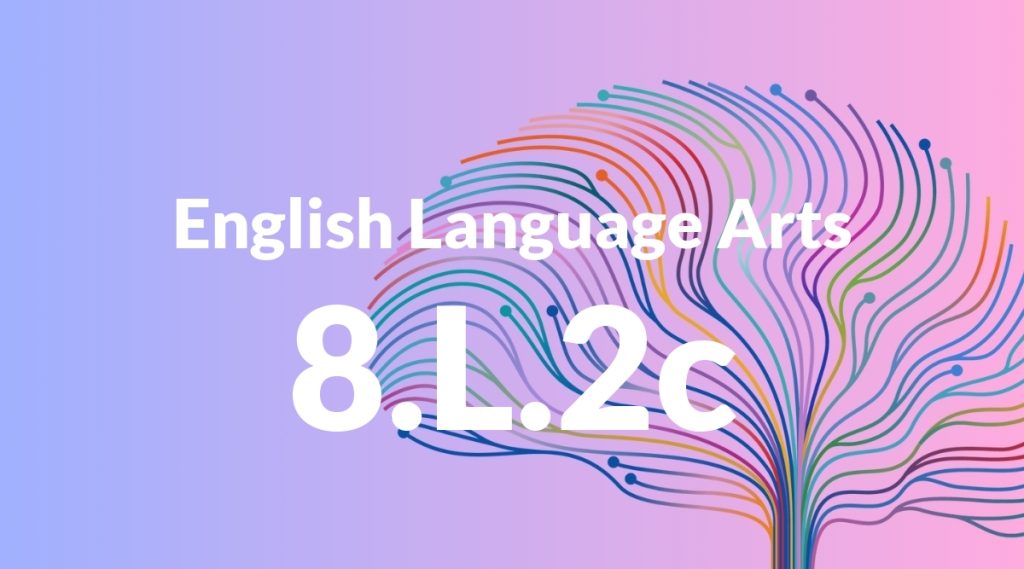Standard: 8.L.2c – Spell correctly.
Grade level: Grade 8
Subject: English Language Arts
Domain: Language
Teacher Overview
This standard emphasizes the importance of correct spelling in written communication. Mastering spelling is crucial for students to convey their ideas clearly and professionally. It also lays the groundwork for more advanced writing skills. Students should be familiar with basic spelling rules and patterns, and have experience using dictionaries or spell-check tools to verify their spelling.
Mastering correct spelling will enable students to write more complex and nuanced texts, enhancing their overall communication skills and preparing them for advanced writing tasks.
Common Misconception 1
Some students might rely too heavily on spell-check tools, assuming they are infallible. This is incorrect because spell-check tools can miss context-specific errors and homophones.
Intervention 1
Incorporate manual proofreading exercises and teach students how to use dictionaries to verify spelling, highlighting the limitations of spell-check tools.
Common Misconception 2
Another common misconception is that all spelling rules are consistent and have no exceptions. This can lead to confusion when encountering irregular words.
Intervention 2
Provide lists of common exceptions and irregular words, and use mnemonic devices and repetitive practice to help students remember them.
Prerequisite Knowledge
Students should have a basic understanding of common spelling rules and patterns, familiarity with frequently used words, and experience using a dictionary or spell-check tools.
Subsequent Knowledge
After mastering correct spelling, students will develop advanced writing skills, including the ability to write more complex and nuanced texts, and will enhance their overall communication abilities.
Instructional Activities
- Spelling quizzes and tests
- Proofreading exercises
- Interactive spelling games
- Writing assignments with peer reviews
- Creating personal dictionaries of commonly misspelled words




